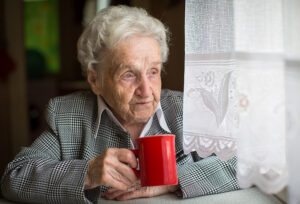It’s not always easy trying to figure out how to help somebody, especially when they are resistant to change. When it comes to topics of elder care, your aging mother or father or even a grandparent or spouse might push back against any suggestions that they move.
In reality, though, assisted living remains one of the best elder care choices to make. Sometimes, though, you may be torn between wanting what’s best for them and not offending them. So, how can you tell if your elderly mother really needs assisted living at this stage in her life?
Below are a few common signs that may indicate that yes, now is the optimal time for this elder care option.
Common Sign #1: Your mother appears depressed.

Assisted Living Theodore, AL: Assisted Living Signs
It’s not easy getting older. Yet, everyone has to do it, if they want to make it to their 70s, 80s, or 90s that is. Along the way, though, it’s easy to fall into depression or become more depressed inwardly and outwardly.
If you notice your mother appears more depressed, the first thing to understand is you don’t want to diagnose her with depression as it could be side effects from certain prescription medications or symptoms of health issues that have gone, as of yet, undiagnosed.
Once she has visited her doctor for proper diagnosis, the next step is to talk about elder care, including assisted living.
Common Sign #2: She is losing weight.
Too often elderly men and women don’t eat properly simply because they no longer have the physical dexterity or strength to prepare healthy meals. Instead of eating properly, they skip meals, including important ones, like lunch and dinner.
If you notice your mother is losing weight, it could be due to a number of health factors, but it can also be due to her inability to properly prepare healthy meals for herself at this stage in her life.
Common Sign #3: She is becoming more forgetful.
If you notice your mother is missing appointments, can’t remember what you two spoke about the day before, or seems to struggle to remember to take prescription medications, it could be a sign of age, dementia, or some other health issue.
It may also be a side effect of certain prescription medications. She should be encouraged to consult with her doctor about these memory challenges, but this is also a great opportunity to discuss assisted living.
If she is struggling with her memory, the staff at assisted living can help her keep track of appointments, medications, and even visits that are scheduled with you.
Common Sign #4: Odd behaviors.
You may notice your mother becoming disoriented or seeming to be confused more often these days. Sometimes, that is related to the time of year, like the holiday season when depressive symptoms can increase.
However, your mother’s odd behaviors could be the result of loneliness, frustration, or even fear that something might happen when you or anyone else is not around.
These are signs that it may very well be time to discuss certain elder care options, the best of which includes assisted living.
If you or an aging loved one are considering a move to an Assisted Living in Theodore, AL, contact Ashbury Manor Specialty Care and Assisted Living at 251-317-3017.


Follow Us!